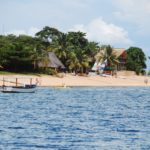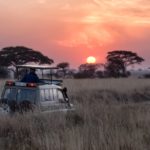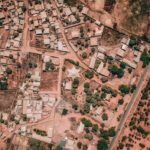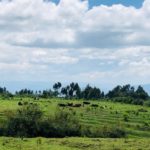Malawi Travel: 8 Things You’ll Want to Know Before Your Trip
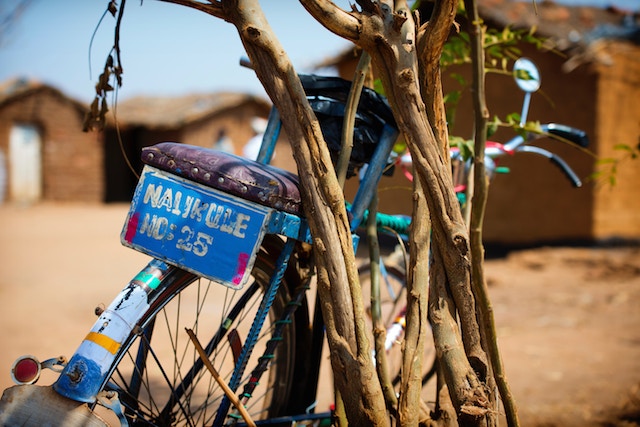
Malawi Travel: 8 Things You’ll Want to Know Before Your Trip
What do you picture when you think about Malawi? Maybe you imagine amazing wildlife and nature, or perhaps you have a more negative idea that has to do with high rates of AIDS, malaria and poverty. I’ve travelled there twice for work, and I promise you there is much more to the ‘warm heart of Africa’. Here are a few things you might not know about Malawi travel:
Malawi Travel: 8 Things You’ll Want to Know Before Your Trip
1. It has amazing natural beauty

One of my favourite places that I’ve ever visited on my travels is Lake Malawi. If you ever get a chance, you should certainly visit: it’s a huge and beautiful lake surrounded by sandy beaches and unspoiled nature. We borrowed kayaks and paddled out across the lake to see fish eagles and many more types of birds. However do be aware that some parts of the lake are not safe to swim in due to bilharzia.
2. It’s a happy place
We in the West have a lot of stereotypical images of Africa. When you think of an African country, you might think of TV adverts showing starving children, filthy water and extreme poverty. Whilst unfortunately all of these problems do exist, this isn’t the whole story. People in Malawi have very little, but they are happy with what they have. People are friendly and sociable and will always greet you with ‘muli bwanji’ (how are you?) – be sure to reply with ‘ndiri bwino’ (I’m fine).
3. They have some really amazing street snacks!
The most popular and well-known Malawian food is nsima – a kind of maize porridge. Most Malawians eat this for at least one meal each day, sometimes with vegetables, a small amount of meat, or a type of gravy. You’ll also see market stalls selling a variety of colourful produce: fresh tomatoes, mangoes and onions or potatoes, for example.
However my personal highlight was the ‘mouse boys’ on the side of the road selling sun-dried mice on sticks, replete with tails, bones and hair. I hope you have a strong stomach!
Malawi Travel: 8 Things You’ll Want to Know Before Your Trip
4. They produce excellent coffee
Malawi might not be the first location that springs to mind when you think about coffee, but as a pretty dedicated coffee aficionado I’ve tried a fair few different types, and Malawian coffee is definitely my favourite.
In fact it’s grown all across Southern Malawi, and often ground and served very fresh compared to the tired old beans you can buy in the UK. You can even buy excellent ground coffee (Mzuzu) at the airport to take home. Not only is this great coffee but it also supports a sustainable and growing industry in Malawi.
5. Its tech infrastructure is surprisingly advanced
One thing you’ll notice in Lilongwe is that its infrastructure is pretty rough and ready. You’ll be bumping over dirt roads and most houses and schools are very basic shacks, often without taps or toilets. But the next thing you might notice is that the 3G connection is great!
If you think you’ll be separated from your Facebook and Twitter while you’re there you’ll be pleasantly surprised. Airtel offers cheap pay-and-go data across all of Africa and unless you go somewhere really rural, you can stay connected.
6. There are lots of strange places built by foreign investors
One thing that might hit you in Lilongwe is the difference between the rich and poor. There are a lot of Chinese investors over there, as well as South African property owners and Westerners who are there with aid organisations. And let’s just say, they’re not living in mud huts.
One of the things I don’t particularly like about Lilongwe is the huge, gated housing complexes where the rich people live, with walls and gates to keep everyone else out. The Chinese have also built some pretty strange, out-of-place buildings such as a (mainly unused) conference centre and an equally rarely-used shopping centre. These odd eyesores are worth a visit though.
7. Education is way behind but it’s making progress
Many schools in Malawi have 100 children or more per teacher. Often they don’t have real classrooms but have lessons outside under a tree. I saw teachers trying to shout over dozens of very loud kids, with few to no teaching resources. Children also only seem to attend school for a few hours each day.
But there are various different projects on the go to introduce new educational practices and resources. The organisation I work for, onebillion, has been building new classrooms in schools there and equipping them with iPads and maths software, which has had amazing results so far.
8. It will change your perspective on a lot of things
If your stereotypes of Africa involve straw and mud huts, no running water and no electricity, well, you’re not too wrong! Of course you can find all modern conveniences in Malawi, but you can also stay somewhere where you’ll go right back to basics. You soon learn to live without social media, TV, makeup and hair straighteners when you’re staying there.
Getting to know some Malawian people will also make you think about what’s important in life – and guess what, it’s not material possessions or looking like a celebrity.
Malawi Travel: 8 Things You’ll Want to Know Before Your Trip
Related Reading
Volunteering in Malawi: 4 Unexpected Lessons
Have you traveled to Malawi? What were your impressions? Email us at editor@pinkpangea.com for information about sharing your experience and advice with the Pink Pangea community. We can’t wait to hear from you.
Malawi Travel: 8 Things You’ll Want to Know Before Your Trip photo credits: Alexandra Turner.


